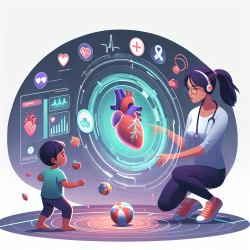Introduction
In the realm of speech-language pathology and broader healthcare, clinical notes are a goldmine of detailed patient information. However, their potential remains largely untapped due to the presence of Protected Health Information (PHI), which poses significant privacy concerns. The recent development of Philter, an advanced de-identification tool, presents a promising solution. This blog explores how Philter can enhance research capabilities while ensuring patient privacy, encouraging practitioners to leverage this tool or delve deeper into related research.
Understanding Philter
Philter, or the Protected Health Information filter, is a state-of-the-art software designed to accurately and securely de-identify free-text clinical notes. Developed by a team at the University of California, San Francisco, Philter combines rule-based and statistical natural language processing (NLP) approaches. This innovative tool stands out by offering substantial improvements over prior methods, boasting a recall rate of over 99.5% for PHI removal.
Why Philter Matters
Clinical notes often contain the richest information about patient conditions, treatments, and outcomes. However, their use in research has been limited due to the risk of exposing PHI. Philter addresses this challenge by ensuring high recall rates, which is crucial for maintaining patient privacy. By effectively removing PHI, Philter enables researchers to utilize clinical notes without compromising patient confidentiality.
Implications for Practitioners
For practitioners in speech-language pathology and other healthcare fields, the implications of Philter are significant:
- Enhanced Research Opportunities: With Philter, practitioners can access a wealth of de-identified data, enabling more comprehensive research and better-informed clinical decisions.
- Improved Patient Outcomes: By leveraging detailed clinical notes, practitioners can gain deeper insights into patient conditions and tailor interventions more effectively.
- Data-Driven Decisions: Philter allows for the integration of rich, qualitative data into decision-making processes, enhancing the overall quality of care.
Encouraging Further Research
While Philter represents a significant advancement, it also opens the door for further research. Practitioners are encouraged to explore additional applications of de-identified clinical notes, such as:
- Investigating new treatment strategies and their outcomes.
- Identifying patterns and trends in patient data that could inform future interventions.
- Collaborating across disciplines to leverage diverse datasets for more holistic insights.
Conclusion
Philter is a game-changer in the field of healthcare research, offering a robust solution to the challenge of PHI in clinical notes. By adopting this tool, practitioners can unlock the full potential of clinical data, driving better outcomes for patients while safeguarding their privacy. For those interested in the technical details and further implications of Philter, the original research paper provides a comprehensive overview.
To read the original research paper, please follow this link: Protected Health Information filter (Philter): accurately and securely de-identifying free-text clinical notes.










